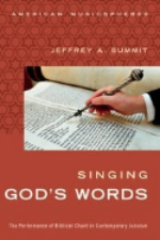Graduate Seminar on Topics in Jewish Music
Taught by Dr. Neil Levin, Visiting Professor-in-Residence
This eight session graduate seminar, YIVO’s first such seminar in music, will embrace an array of topics within the wider spectrum of Jewish Studies related to the music of Jewish experience or connection—secular-cultural as well as sacred-liturgical aspects—according to the interests and pursuits of the participants.
This seminar is open to graduate students within any department at all colleges, universities or conservatories. It is not restricted to those within music departments per se, but also open to those pursuing Jewish Studies in general—especially history, literature, theatre, liturgy, or other sub-fields of Jewish Studies—who may have special interest in related music in terms of context and interdisciplinary consideration.
With prior approval, undergraduate (college, university, or conservatory) students may also be permitted to participate—both those with an interest in a particular area of Jewishly-related music and those who may be pursuing related term papers or projects.…
CONTINUE READING >


